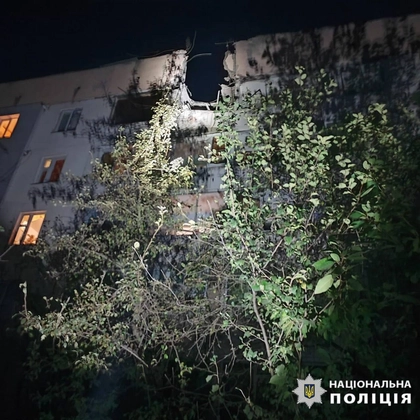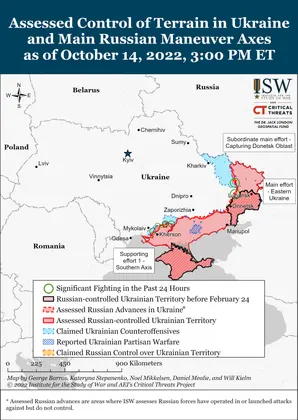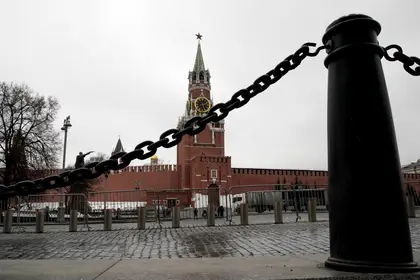Key Takeaways
- Russian President Vladimir Putin announced that his “partial” mobilization will end in “about two weeks”—likely to free up bureaucratic bandwidth for the normal autumn conscription cycle that will begin on Nov. 1.
- Putin may intend for mobilized personnel to plug gaps in Russia’s frontlines long enough for the autumn conscripts to receive some training and form additional units to improve Russian combat power in 2023.
- Ukrainian and Western officials continue to reiterate that they have observed no indicators of preparations for a Belarusian invasion of Ukraine, despite alarmist reports in the Belarusian information space that President Alexander Lukashenko has introduced a “counter-terrorist operation” regime.
- Russian President Vladimir Putin stated on Oct. 14 that there is currently no additional need for further massive strikes against Ukraine.
- Russian authorities are continuing to engage in “Russification” social programming schemes that target Ukrainian children.
- A prominent Russian milblogger accused unspecified senior officials within the Russian Ministry of Defense (MoD) of preparing to censor Russian milbloggers on October 14, but there is no official confirmation of an investigation or prosecution of these milbloggers.
- Russian sources continued to claim that Ukrainian forces are conducting counteroffensive operations in northeast Kharkiv Oblast east of Kupyansk.
- Russian troops conducted limited ground attacks west of Kreminna in order to regain lost positions.
- Russian forces conducted limited ground attacks in northwestern Kherson Oblast in order to regain lost positions.
- Russian troops continued ground attacks around Bakhmut and Donetsk City.
- Russian authorities expressed increasing concern over Ukrainian strikes against Russian rear logistics lines in southern Donetsk Oblast.
- Russian occupation authorities are continuing to consolidate control of the Zaporizhzhia Nuclear Power Plant (ZNPP) through strengthened security measures amid negotiations to establish a nuclear safety and protective zone at the plant.
- Russian officials continued to brand their movement of populations out of Kherson Oblast as recreational “humanitarian trips” rather than evacuations.
Russian President Vladimir Putin likely attempted to make a virtue of necessity by announcing that his “partial” mobilization will end in “about two weeks”—the same time the postponed fall conscription cycle is set to begin. Putin told reporters on October 14 that “nothing additional is planned” and that “partial mobilization is almost over.”[1] As ISW previously reported, Putin announced the postponement of Russia’s usual autumn conscription cycle from October 1 to November 1 on September 30, likely because Russia’s partial mobilization is taxing the bureaucracy of the Russian military commissariats that oversee the semiannual conscription cycle.[2] Putin therefore likely needs to pause or end his partial mobilization to free up bureaucratic resources for conscription. Putin ordered the conscription of 120,000 men for the autumn cycle, 7,000 fewer than in autumn 2021. However, Russia’s annexation of occupied Ukraine changes the calculus for conscripts. Russian law generally prohibits the deployment of conscripts abroad. Russian law now considers Russian-occupied Kherson, Zaporizhia, Donetsk, and Luhansk oblasts to be Russian territory, however, ostensibly legalizing the use of conscripts on the front lines.
JOIN US ON TELEGRAM
Follow our coverage of the war on the @Kyivpost_official.
Putin may intend for mobilized personnel to plug gaps in Russia’s frontlines long enough for the autumn conscripts to receive some training and form additional units to improve Russian combat power in 2023. Putin confirmed on October 14 that mobilized personnel are receiving little training before they are sent to the frontlines. Putin announced that of the 220,000 people who have been mobilized since his September 21 order, 35,000 are already in Russian military units and 16,000 are already in units “involved in combat missions.”[3] Putin also outlined the training these mobilized forces allegedly receive: 5-10 days of “initial training,” 5-15 days of training with combat units, “then the next stage is already directly in the troops taking part in hostilities.” This statement corroborates dozens of anecdotal reports from Russian outlets, milbloggers, and mobilized personnel of untrained, unequipped, and utterly unprepared men being rushed to the frontlines, where some have already surrendered to Ukrainian forces and others have been killed.[4] Even the 10 days of training that mobilized personnel may receive likely does not consist of actual combat preparation for most units; anecdotal reports suggest that men in some units wandered around training grounds without commanding officers, food, or shelter for several days before being shipped to Ukraine.[5] Many would-be trainers and officers were likely injured or killed in Ukraine before mobilization began.[6] Russian training grounds are also likely understaffed, a problem that will likely persist into the autumn conscription cycle. The Ukrainian General Staff reported on October 14 that Russian military officials in Krasnodar Krai suspended sending mobilized persons to the training grounds in Primorsko-Akhtarsk until November 1 because Russian training grounds are not ready to accommodate, train or comprehensively provide for a large number of personnel.[7]

Kyiv Hit by Massive Drone Attack as Russian Strikes Target Multiple Ukrainian Cities
Ukrainian and Western officials continue to reiterate that they have observed no indicators of preparations for a Belarusian invasion of Ukraine, despite alarmist reports in the Belarusian information space that President Alexander Lukashenko has introduced a “counter-terrorist operation” regime.[8] Belarusian Foreign Minister Vladimir Makei gave an interview to Russian outlet Izvestia on October 14 wherein he claimed that Belarusian President Alexander Lukashenko introduced a ”counter-terrorist operation regime” after a meeting with several law enforcement agencies.[9] Makei cited concern that unspecified neighboring states were planning provocations related to seizure of areas of Belarusian territory.[10] This claim was amplified by several Ukrainian, Belarusian, and Russian sources, who claimed that as part of the ”counter-terrorist operation regime,” Lukashenko began deploying groups of Belarusian forces supplemented by Russian troops.[11] Belarusian opposition outlet Nasha Niva claimed that as part of this regime, Belarusian forces are conducting covert mobilization under the guise of combat readiness checks.[12] However, Lukashenko emphasized in a comment to the press that there has been no introduction of a ”counter-terrorist operation regime” and that he has instead introduced a ”regime of a heightened terrorist threat.”[13]
Despite the contradicting claims of an escalated preparatory regime in Belarus, White House National Security Council spokesperson John Kirby told Voice of America that there are no indicators that Belarusian troops are preparing to enter Ukraine.[14] ISW continues to assess that joint Belarusian and Russian forces will not invade Ukraine from the territory of Belarus. Russian forces continue to attrit their own combat capabilities as they impale themselves on attempts to capture tiny villages in Donbas and simply do not have the combat-effective mechanized troops available to supplement a Belarusian incursion into northern Ukraine and certainly not to conduct a mechanized drive on Kyiv. As ISW has previously reported, Lukashenko remains unlikely to enter the war on Russia’s behalf due to the domestic risks this would pose for the continued viability of his regime, as well as the low quality of Belarusian Armed Forces.[15] Russian President Vladimir Putin is more likely weaponizing concerns over Belarusian involvement in the war to pin Ukrainian troops against the northern Ukraine-Belarus border.
Russian authorities are continuing to engage in “Russification” social programming schemes that target Ukrainian children. A local news outlet from Russia’s Novosibirsk Oblast reported on October 13 that 24 orphans from Luhansk Oblast arrived in Novosibirsk for placement with Russian foster families.[16] Ukrainian Mayor of Melitopol Ivan Fedorov similarly reported that Russian occupation authorities in Melitopol and other occupied regions are deporting Ukrainian children to Russian-occupied Crimea, Krasnodar Krai, and Tula and Volgograd Oblasts under the guise of “children’s trips” and “further education” programs.[17] As ISW has previously reported, such forced deportations of Ukrainian children to Russia and Russian-occupied territory may constitute violations of the Convention on the Prevention and Punishment of the Crime of Genocide.[18] Occupation authorities in Russian-occupied Mariupol are also reportedly pressuring Ukrainian teenagers to join the “Youth Guard,” a children’s paramilitary organization that encourages anti-Ukrainian sentiments. Mariupol Mayoral Advisor Petro Andryushchenko reported on October 14 that uniformed members of the Youth Guard visited a Ukrainian school and gave children one week to consider joining the group.[19] The coerced engagement of Ukrainian children in youth militarization programs fits into wider Russification schemes intended to erase Ukrainian identity in Russian-occupied parts of Ukraine.
Russian President Vladimir Putin stated on October 14 that there is currently no additional need for further massive strikes against Ukraine. Putin claimed that Russian forces struck 22 of their 29 intended targets and that there are now unspecified “other tasks” for Russian forces to accomplish.[20] Putin’s statement was likely aimed at mitigating informational backlash among pro-war milbloggers who oppose curtailing the costly missile campaign; Russian milbloggers had largely praised the resumption of strikes against Ukrainian cities but warned that a short campaign would be ineffective. Putin’s statement supports ISW’s previous assessment that Putin knew he would not be able to sustain high-intensity missiles strikes for a long time due to a dwindling arsenal of high-precision missiles.[21] Ukrainian Defense Minister Oleksiy Reznikov claimed on October 14 that Russian forces have 609 high-precision missiles left from the pre-war stockpile of 1,844.[22] The Ukrainian General Staff reported that Russian forces continued cruise missile, aviation, kamikaze drone, and anti-aircraft missile strikes against Ukrainian critical infrastructure in Kyiv Oblast, Zaporizhzhia City, Mykolaiv City, and other areas in Mykolaiv Oblast on October 14.[23] The Russian Ministry of Defense (MoD) claimed on October 14 that Russian forces targeted Ukrainian command and control elements and energy infrastructure in Kyiv and Kharkiv oblasts with sea-based missiles.[24] These reports demonstrate a lower tempo of strikes than the 84 cruise missile strikes reported on October 10.[25]
A prominent Russian milblogger accused unspecified senior officials within the Russian Ministry of Defense (MoD) of preparing to censor Russian milbloggers on October 14. Prominent Russian milblogger Semyon Pegov (employed by Telegram channel WarGonzo) accused “individual generals and military commanders” of developing a “hitlist” of Russian milbloggers that the MoD seeks to criminally prosecute for “discrediting” the Russian MoD’s activity and the Russian special military operation in Ukraine.[26] Russian news aggregator Mash reported on October 14 that Chief of the Russian General Staff Valery Gerasimov personally signed an order instructing Russian state media censor Roskomnadzor to investigate prominent Russian milbloggers Igor Girkin (also known as Igor Strelkov), Semyon Pegov (WarGonzo), Yuri Podolyaka, Vladlen Tatarsky, Sergey Mardan, Igor Dimitriev, Kristina Potupchik, and authors of the Telegram channels GreyZone and Rybar. Unspecified Russian authorities detained the manager of several milblogger Telegram channels linked to Wagner financier Yevgeny Prigozhin on October 5.[27] Moscow police previously arrested and released Pegov under unusual circumstances (reportedly for drunkenly threatening a hotel administrator) in Moscow on September 2.[28] The situation will likely become clearer in the coming days. A key indicator for the status of a crackdown on Russian milbloggers will be any status update from former Russian militant commander and nationalist milblogger Igor Girkin. Girkin has not posted since October 10—a significant change in his behavior given that he usually posts multiple times daily.[29]
There has been no official confirmation of an investigation or prosecution of these milbloggers as of October 14. Senior Russian propagandist and RT Editor-in-Chief Margarita Simonyan responded to Pegov’s claim on October 14 and implied that prosecuting military bloggers is not only a bad idea but impossible to implement.[30] Many milbloggers expressed outrage at the prospect that elements of the Russian government would seek to censor ardent patriots who seek to hold the MoD accountable and expressed hopes that ”rumors” about the milblogger hitlist are untrue.[31] The interests of the Kremlin do not intrinsically align with the MoD in this situation: Putin has overtly courted the support of the milblogger community in recent months, as ISW has extensively covered, and has used the milbloggers to frame senior MoD officials and the MoD as a whole as possible scapegoats for military failures in Ukraine.[32] Nor did the milbloggers blame the Kremlin for the alleged hitlist; Pegov emphasized that this sort of alleged censorship was likely not Putin’s intention when he opened dialogue with milbloggers in June and called for reporters and journalists to tell the truth about the “special military operation.”[33]
See the full report here.
You can also highlight the text and press Ctrl + Enter






